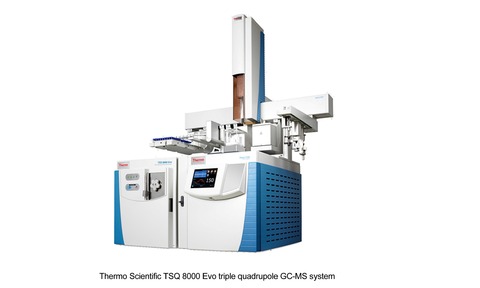
Laboratories analysing food and biological samples for compounds such as dioxins, PCBs, pesticides and steroids now have access to the latest GC-MS/MS from Thermo Fisher Scientific.
Designed to deliver more sensitivity at faster speeds than its predecessor, the TSQ 8000 Evo triple quadrupole GC-MS is making its debut at the 62nd ASMS Conference on Mass Spectrometry and Allied Topics this week.
The TSQ 8000 Evo system improves on the features of its predecessor, the TSQ 8000, with EvoCell technology, demonstrated in company-run experiments to triple selected reaction monitoring (SRM) transition rates without compromising sensitivity.
Contributing to this productivity is the included Timed-SRM software for optimising selected reaction monitoring schedules.
The company also claims experiments showed that the EvoCell can enable triple the sensitivity at the same scan speed – allowing users to screen and quantitate more than 1,000 compounds in a single run at low limits of detection.
“Many laboratories can always use more capacity, more performance and more productivity from their GC triple quadrupole systems,” said Paul Silcock, GC-MS marketing manager for Thermo Fisher Scientific.
“This was our motivation for advancing this popular triple quadrupole GC-MS platform to the next level. It’s a major evolutionary step in GC-MS/MS productivity and performance.”
The company has automated method development and management with enhanced AutoSRM software.
Now, development of selected reaction monitoring (SRM) experiments on the platform is simplified even further.
The instrument’s ExtractaBrite ion source is designed for high matrix tolerance to minimise sample preparation and cleaning.
When the source does need maintenance, it can be removed without breaking vacuum to further enhance uptime.





